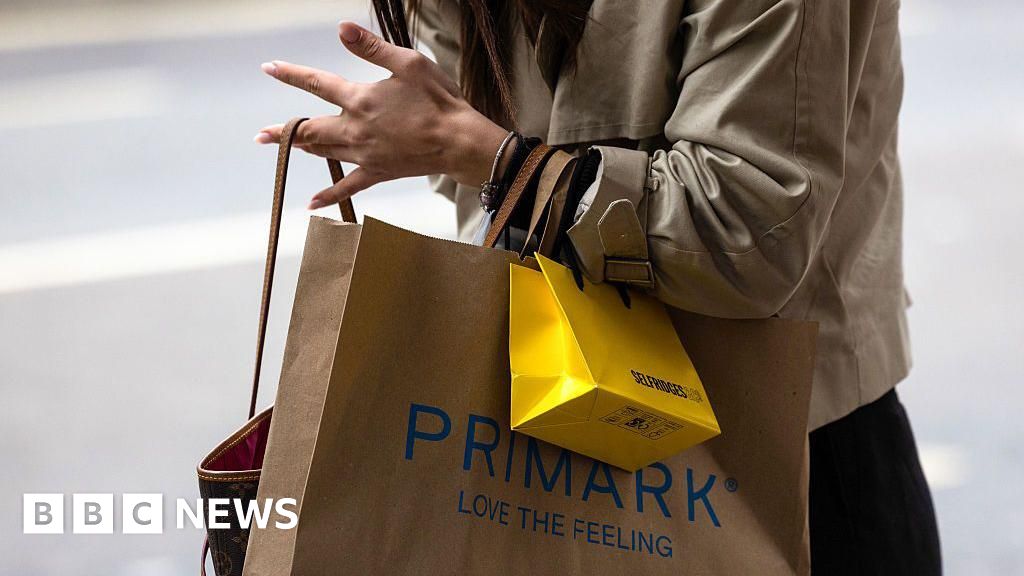Shares in Primark-owner Associated British Foods (ABF) sunk more than 10% on Tuesday after a warning from the firm over “consumer caution” amid a cost of living pressures.
People are concerned about rising inflation and also fear unemployment, said George Weston, chief executive of ABF.
Mr Weston said that market conditions were “challenging”, with concerns over the wider economy meaning customers were being more careful with their money.
Analysts said weaker sales at the fast fashion retailer were behind the share price fall.
Russ Mould, investment director at AJ Bell, said the “real let-down” for investors was Primark, which increased sales by “just 1%” in the six months to 13 September, while its profit margin slipped.
“This probably reflects the sluggish economic environment in the EU, where consumers still seem relatively cautious, as well as competition from Chinese rivals such as Shein and Temu,” he said.
In the UK, significant tax rises are rumoured to be announced in the autumn Budget.
Some economists have predicted that the pace of general price rises – inflation – could pick up globally in the second half of the year, and it is expected to rise in the UK.
This could affect low-cost retailers, Mr Mould said: “The idea that value retailers will automatically thrive in a period where consumers are watching their pennies no longer stacks up.
“Cheap prices do not mean goods will fly off the shelf, just as Primark has found out.”
He added that US consumer spending “has been more robust” than in Europe, but there were question marks over what would happen in the US if unemployment continues to rise and job vacancies continue to fall.
Alex Smith, global sector lead at Third Bridge consultancy said that US tariffs were “a likely headache for the US business”, where sales have been stronger than Europe.
US president Donald Trump has been raising trade import taxes on goods arriving to American from a number of countries which he has argued will encourage US manufacturing and increase tax revenue.
Mr Smith said: “Roughly half of Primark’s products still come from China, and while the company has tested suppliers in places like Bangladesh, Vietnam and South America, none can yet match China’s scale or supply chain maturity.
“Passing higher costs on to customers in the US is difficult too, given the relentless price pressure from Shein and Temu.”
He added that while US consumers have responded favourably to Primark opening more stores, the “rollout has been uneven”.
“Opening stores in far-flung states like Florida and Ohio doubled distribution costs across the entire US network,” he said. “The scattered approach has piled on logistics costs and led to mismatched demand across regions.”
